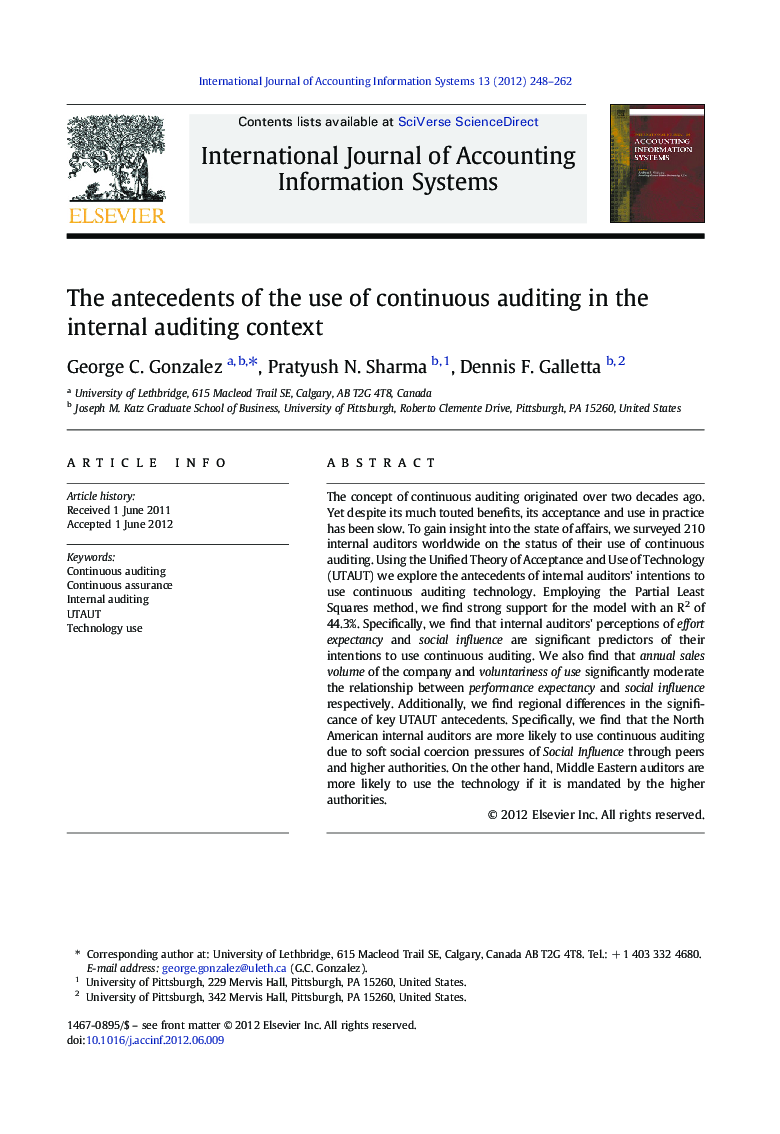| Article ID | Journal | Published Year | Pages | File Type |
|---|---|---|---|---|
| 1005470 | International Journal of Accounting Information Systems | 2012 | 15 Pages |
The concept of continuous auditing originated over two decades ago. Yet despite its much touted benefits, its acceptance and use in practice has been slow. To gain insight into the state of affairs, we surveyed 210 internal auditors worldwide on the status of their use of continuous auditing. Using the Unified Theory of Acceptance and Use of Technology (UTAUT) we explore the antecedents of internal auditors' intentions to use continuous auditing technology. Employing the Partial Least Squares method, we find strong support for the model with an R2 of 44.3%. Specifically, we find that internal auditors' perceptions of effort expectancy and social influence are significant predictors of their intentions to use continuous auditing. We also find that annual sales volume of the company and voluntariness of use significantly moderate the relationship between performance expectancy and social influence respectively. Additionally, we find regional differences in the significance of key UTAUT antecedents. Specifically, we find that the North American internal auditors are more likely to use continuous auditing due to soft social coercion pressures of Social Influence through peers and higher authorities. On the other hand, Middle Eastern auditors are more likely to use the technology if it is mandated by the higher authorities.
